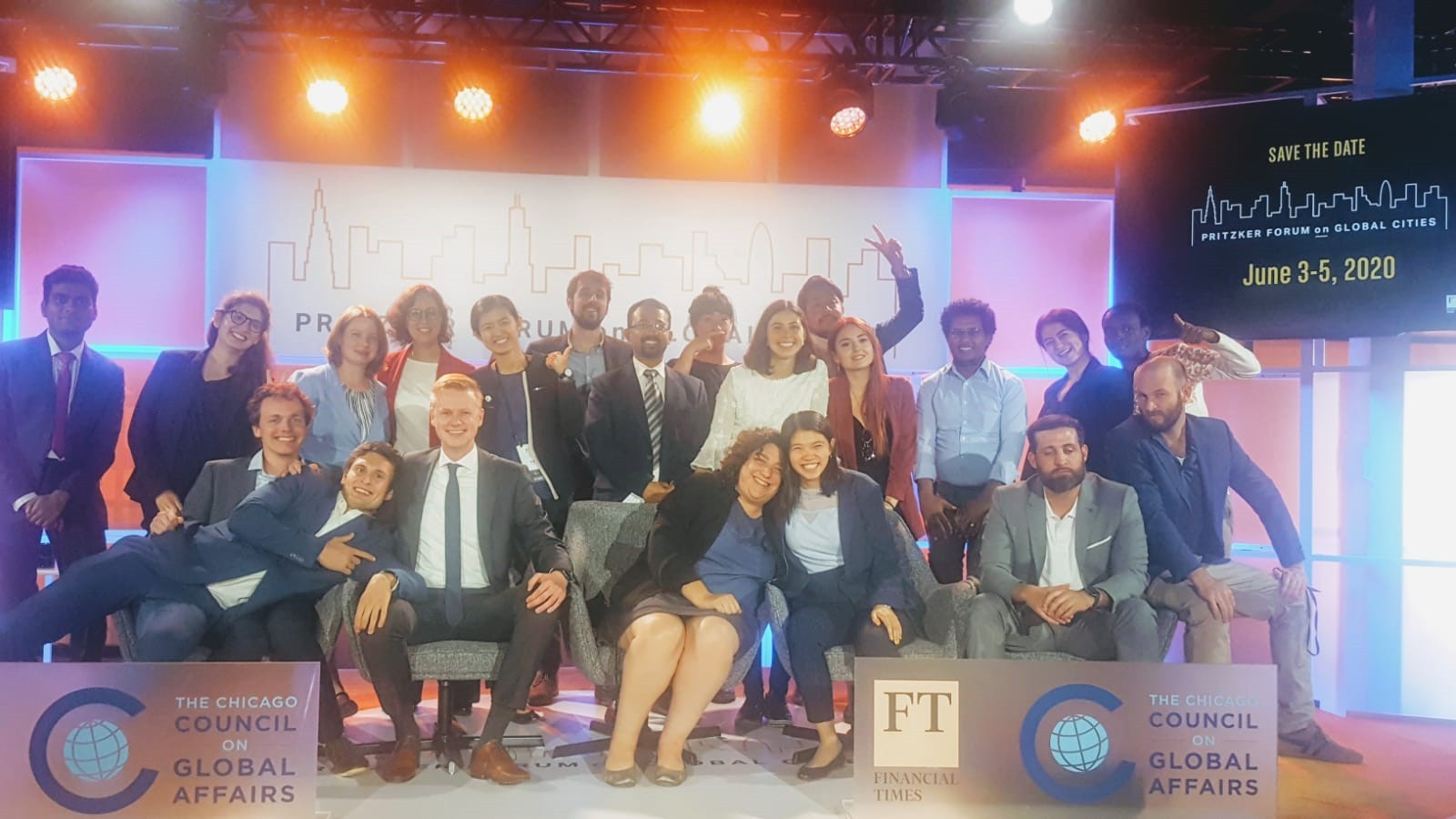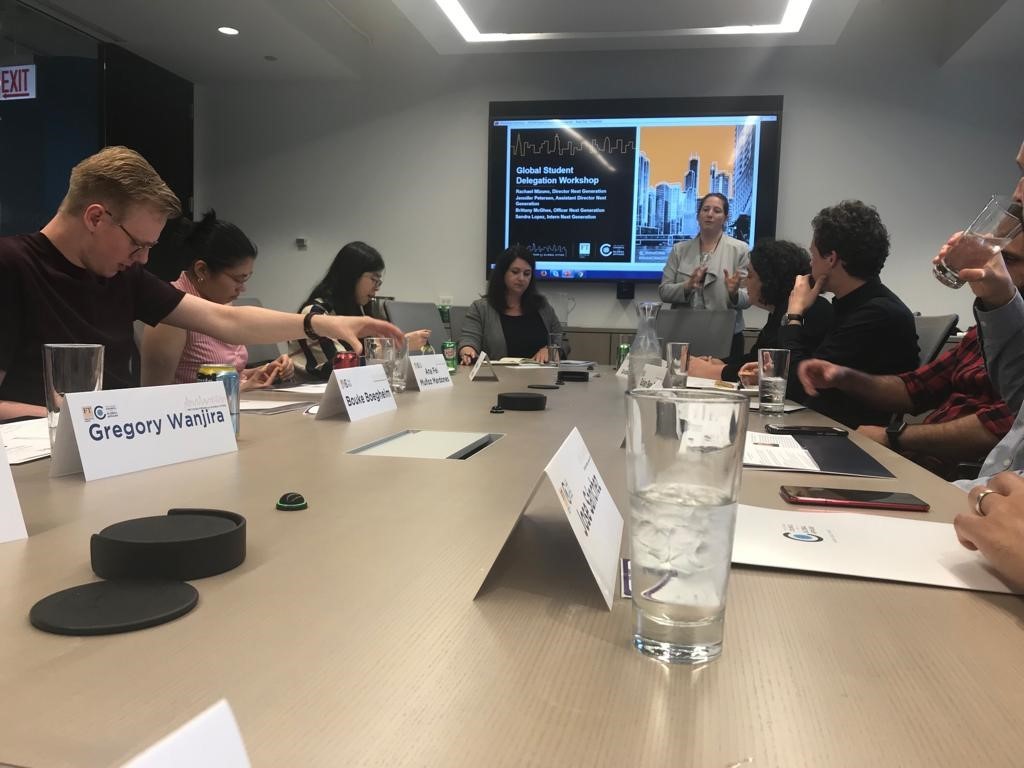Going Global
Going Global
Huang Weijie is a stellar PhD Year 4 student who’s won plenty of international academic accolades across her years of study, having been a Fulbright Scholar at UCLA, and a Visiting Scholar at the Singapore Management University. As a bright, global-minded student, she was selected to be one of the 30 Student Delegates for the prestigious Pritzker Forum on Global Cities.
The Chicago-based three-day international forum brought together leaders across sectors including business, civics, education, and the arts. These top minds generated a cross-sector dialogue on how global cities play an influential role in solving critical global challenges.

The history of the Forum is somewhat
surprising. Originally, as Wejie explained, the Forum focused
on architecture. It explained why Chicago (with its multi-layered architectural
landscape) was chosen as its location. But the focus on city architecture
slowly evolved to a focus onto the cities themselves, and by extension, the
issues faced by those cities around the world. This is why today, the Forum focuses
on issues of a global scale through the lens of cities.
As a keen researcher on the copyright law, Weijie was quite intrigued by the Forum’s deep-dive workshop on the usage of data in the context of copyright. As technology improves, allowing us to increasingly access and store data (including our chat records, statistics of our natural industries, and etc.), the ethics of our data-related activities must also be examined more stringently. The workshop generated a fascinating dialogue from different voices (including academics, students, and even the Mayor of Chicago) on the right approach to handling data on a large-scale.
Another roundtable that left the
strongest impression on Weijie was centred on women and leadership. The talk
focused on some women leaders’ professional path and how they balanced their
private and public lives. Though women enjoy far more freedom compared with the
past, it’s undeniable that they still face disadvantages in the workplace due
to long-standing gender stereotypes, such as the notion that women should forsake
their careers to tend to their families. In the Forum, women leaders spoke
about how they were able to balance these different hats on their head with the
help of spouses and social institutions.
The Forum also discussed how
traditionally “feminine” attributes don’t have to be forsaken for the sake of
professional competitiveness. For example, Weijie explained, while gentleness
(which is traditionally lumped in with “femininity”) might be derided as
weakness, it could, in fact, be used successfully to deescalate conflict and
build office rapport. Only sunshine can remove the coat of a traveller – not
the strongest wind! As we move towards a new age, it’s more and more important
to see existing tools in a more holistic light.

“Students should be more international in their attitudes to rise up to face these challenges.”
The Forum gave Weijie a lot of insight
regarding her academic research. Weijie’s research focuses on the expansion of
copyright law, which is a contentious subject. The topic intersects law,
technology, ethics, and more. According to Weijie, while copyright laws should
incentivise companies to create more content, the freedom of users to enjoy
such content should also be protected. As Weijie says, “The purpose of
copyright laws is to promote cultures – such as music, writing, and film –
instead of protecting the rights of a few groups of commercial subsidiaries.” Her
research digs deep into an important global trend, and by participating in the
Forum, she was able to take her ideas to the global table.
Weijie
highly recommends students to take part in the Forum. “The world is changing
very quickly,” she said, “and students should be more international in their
attitudes to rise up to face these challenges.” By raising provocative
questions, the Forum guides participants to think on a global scale and solve
the challenges of tomorrow.
Written by:
Gabrielle Tse Mei Ying
Year 3, Faculty of Arts
July 2020


